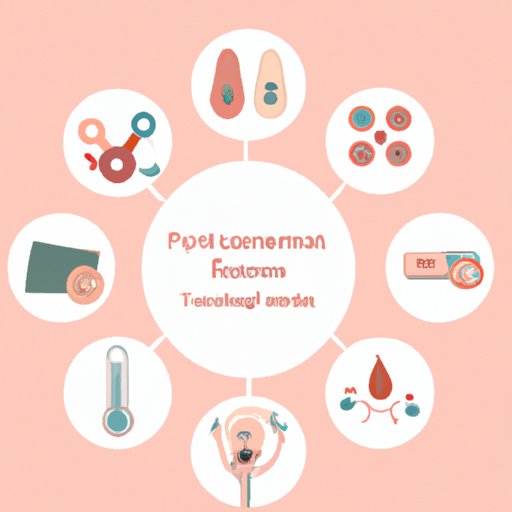Introduction
For couples trying to conceive, ovulation plays a crucial role in fertility. Without ovulation, the egg required for pregnancy cannot be released, hindering the chances for conception. Unfortunately, many individuals and couples can struggle with ovulation, resulting in infertility. Statistics show that approximately 10 to 15% of couples struggle with infertility, with ovulation problems accounting for approximately 25% of those cases. This article aims to provide a comprehensive understanding of the various reasons why you may not be ovulating and possible solutions.
Hormonal Imbalances
The menstrual cycle is regulated by a complex interplay of hormones, and any hormonal imbalances can impact ovulation. For example, high levels of prolactin, often due to a pituitary gland issue, can inhibit ovulation. Similarly, low levels of follicle-stimulating hormone can prevent follicles from maturing, hindering ovulation. Hormonal imbalances can have a wide range of causes, including thyroid disorders, premature ovarian failure, excessive exercise, and eating disorders.
Polycystic Ovary Syndrome (PCOS)
PCOS is a hormonal disorder affecting 1 in 10 women, where the ovaries develop small cysts due to hormonal imbalances. This can lead to a range of symptoms, including irregular menstrual cycles, insulin resistance, and weight gain. The condition can also hinder ovulation, with some individuals experiencing anovulation. Diagnosis of PCOS involves a combination of clinical symptoms, blood tests, and imaging studies. Treatments can include lifestyle modifications, such as weight loss and regular exercise, and medications to encourage ovulation.
Stress and Lifestyle Factors
In addition to hormonal imbalances, stress and various lifestyle factors can also impact ovulation and fertility. Chronic stress can disrupt the hypothalamic-pituitary-adrenal axis, leading to hormonal imbalances and irregular cycles. Lifestyle factors such as smoking, alcohol consumption, caffeine intake, poor diet, and lack of exercise can also lead to hormonal imbalances and ovulation problems. Strategies for reducing stress and improving overall health include practicing stress-reducing techniques, such as yoga or meditation, and making healthy lifestyle choices, such as quitting smoking and reducing alcohol consumption.
Other Medical Conditions
Endometriosis, uterine fibroids, and pelvic inflammatory disease are just a few of the medical conditions that can lead to ovulation problems. Endometriosis occurs when the tissue that lines the uterus grows outside the uterus, while uterine fibroids are non-cancerous growths in the uterus. Pelvic inflammatory disease is an infection of the reproductive organs that can cause scarring and blockage. These conditions can lead to fertility issues and require medical attention to diagnose and determine the best course of treatment.
Conclusion
Infertility and ovulation problems can be distressing, but there are many reasons for infertility, and it is important to seek medical help if needed. Hormonal imbalances, PCOS, stress, lifestyle factors, and medical conditions can all impact ovulation and, hence, fertility. Long-term solutions for ovulation problems include lifestyle modifications, medications, and surgical interventions. Take care of your health, seek medical help when necessary, and keep exploring fertility options to make your dream of parenthood a reality.
